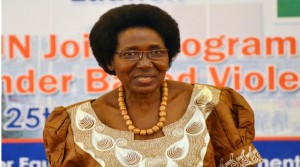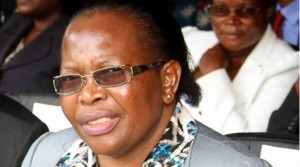By NAKUBIANA MUMBUNA –
ZAMBIA today joins the rest of the world in celebrating International Women’s Day.
To this, International Women’s Day is a global event celebrating the economic, political and social development of women in the past, present and future.
Further, this is the day that women celebrate the courage of their fellow women who have played and continue to play extraordinary roles in their respective countries.
Admittedly, this is also a day that provides an opportunity to do introspection on how women as partners in the development process are faring in decision making.
It is important to note in this regard that the local theme for this year’s Women’s Day is” Gender is my Agenda Make it Happen”.
To this end, countless of women in Zambia have made contributions in the political, economic and social development of this country since independence in 1964 to date.
Among great women that have immensely contributed to the political emancipation of Zambia include Mama Julia Chikamoneka.
It is not an exaggeration that this great women fought for the independence of this country along men.
Mama Julia Chikamoneka was one of the pioneers of political engagement and activism before independence during which she encouraged women to fight for their political destiny.
Born as Julia Mulenga Nsofwa, Mama Chikamoneka won fame among fellow women for her courage and bravery in fighting for independence.
However it must be noted that countless women in this country contributed to the country’s independence with little recognition.
Others that contributed to the independence struggle also include Mama Kankasa who once served as a chairperson of the womens league during the UNIP.
Suffice to mention that there were a number of women who contributed to the struggle for independence.
Yes, the country has also seen the appointment of the first female vice President in Zambia Inonge Wina with the likes of Ms Ireen Mambilima at the helm of the Judiciary.
The appointment of Ms Wina and Ms Mambilima alike elated a number of women organisations who state that her appointment is a step in the right direction with regards to women empowerment.
On the economic and social development front, a number of women have made their contributions to the country.
In this regard, we have seen the likes of Anna Chifungulwa as auditor general, Rosewine Wandi as Anti Corruption Commission (ACC) chief, with Stella Libongani at the helm of the police.
With this back ground, the Sunday Times took time to get the views of various women with regards the International Women’s Day this year.
Non Governmental Organisation Coordinating Council (NGOCC) chairperson Sarah Longwe said Zambia as compared to other countries in the region was at the bottom of the list with regards to women empowerment.
She said very few women were in decision making positions in Zambia as compared to other countries in the region.
Ms Longwe, who is also a feminist activist, described Zambia as a patriarchal society which still views women as subordinates.
She said at the moment Zambia only had 12 percent women representation in parliament.
Ms Longwe said the current situation in Zambia positions the country at the bottom of list as compared to other countries.
She further said South Africa currently had the highest number of women in cabinet and parliament.
However in Zambia at local Government level, there is only a six percent women representation with at least 30 percent representation at cabinet level.
She has since called for the need to inclusion more women at decision making levels stating that the current status in Zambia was discriminatory against women.
Women in Law in Sothern Africa (WiLSA) regional coordinator Matrine Chuulu said it was gratifying that Zambia would this year celebrate International Women’s Day in style with the first female Vice President.
Ms Chuulu said the appointment of Chief Justice Ireen Mambilima was also impressing.
“As we celebrate our day this year, we have something to smile about as we have seen more women being appointed to higher offices,” she said.
Ms Chuulu, who is also a member of the Southern African Development Community (SADC) protocol alliance, however said there was still need for the country to do more in the area of gender equality.
She bemoaned that Zambia for the second time had missed the SADC bench mark to increasing women in decision making.
Ms Chuulu stated that Zambia first missed the bench mark in 1997 when it was pegged at 30 percent.
Women for Change (WFC) program coordinator Salome Nakazwe said there was need for both men and women to take action and change the way they treated each other in all spheres.
Ms Nakazwe said there were gender disparities not only in the political arena but in a number of other areas as well.
“There is now need to walk the talk with regards to issues of gender because enough has been said already, “he said.
To this end, probably there is need for Zambia to learn from the other countries in the region on how they have progressed in the area of gender equality.








